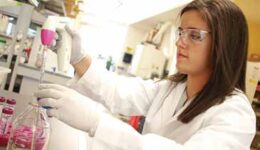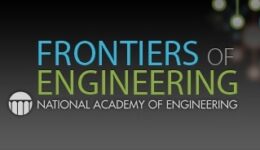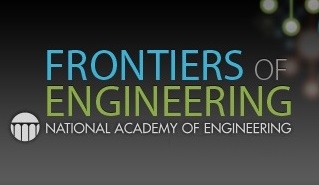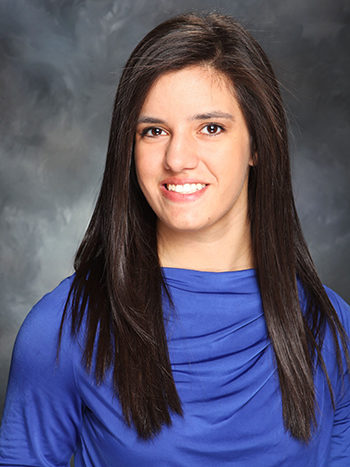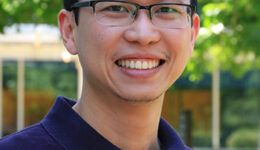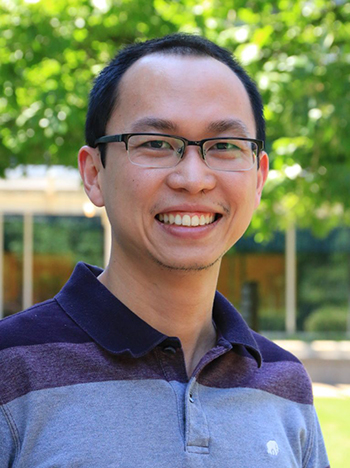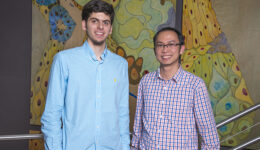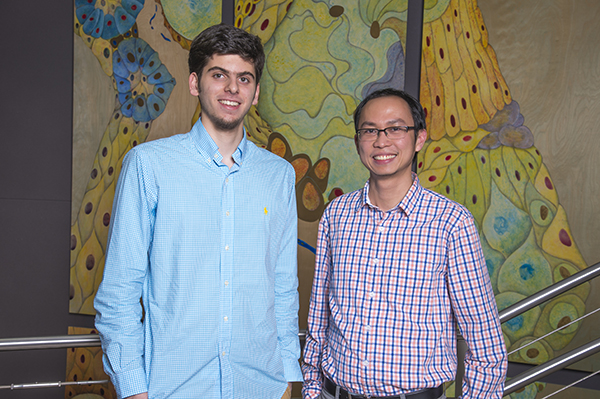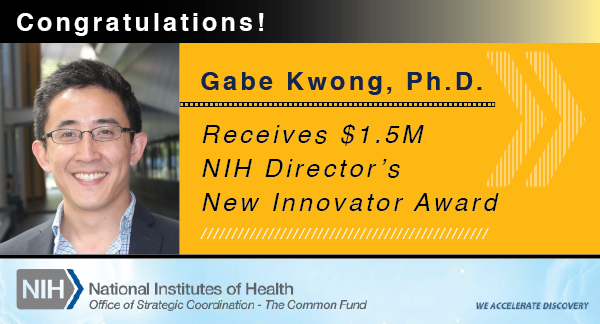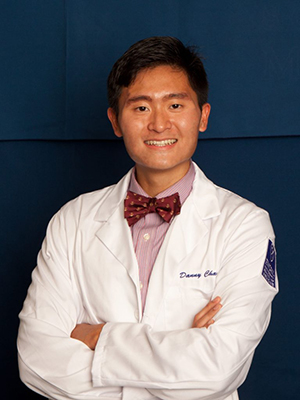Lena Gamboa Featured in Brown Engineering Magazine
NSF Fellowship, Brown Connections Lead Marielena Gamboa Castro ’15 to Cancer Research
The story of Marielena Gamboa Castro ’15 cannot be told without weaving in connections she made during her time on the Brown University campus. Recently awarded a highly prestigious National Science Foundation Graduate Research Fellowship, she has every intention of enlarging that circle of contacts.
The biomedical engineering concentrator, honored with the 2015 George H. Main prize (awarded for her diligence and devotion to studies, and holding promise of success in her field), worked in Assistant Professor Ian Wong’s lab as an undergrad. As one of the first undergraduates to join the Wong Lab, she had previously done some work with image analysis, making her a positive addition to Wong’s cancer cell research team.
Wong, who had just arrived on campus in 2013, was exploring how cancer cells transition to malignant behaviors such as invasion and drug resistance. Gamboa Castro spent two years examining how mixtures of benign and malignant cells coordinate their migratory behaviors. Early on, she, Wong, and others close to the project realized there was something here worth sharing. It was not going to be complete by graduation, however, so when the opportunity came to stay around for another year as a researcher, she took it. This allowed her time to finish the project, ultimately leading to the publication of her research.
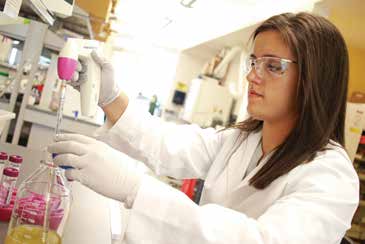
Her first authored paper, “Clustering and Jamming in Epithelial-Mesenchymal Co-Cultures,” was published last September in the journal Soft Matter. The paper revealed that cancer cell migration is influenced by the density and type of neighboring cells, analogous to how cars get stuck in traffic. To quantify these behaviors, Gamboa-Castro, Ph.D. candidate Susan Leggett and Wong tracked thousands of cells and developed methods to analyze intercellular interactions. They found that epithelial cell types, which typically form sheet-like tissues in the body, can aggregate together to arrest their motion, known as a “jamming” transition. Instead, mesenchymal cells, which are typically individually dispersed in connective tissues, tend to remain mobile and unattached. Unexpectedly, mixtures of these two cell types with even a small fraction of mesenchymal cells remained “unjammed” with highly fluid cellular motions. This work suggests that tumors that include mesenchymal cells can rapidly transition to malignant invasion. These mesenchymal cells thus represent a promising therapeutic target.
“I believe this work has important implications to cancer research, and I strongly felt that it deserved to be completed,” Gamboa Castro said. “And working as a research assistant gave me time to focus on applying to graduate school, and figure out where I wanted to go.” Where she ended up is the joint Georgia Tech/Emory University biomedical engineering program, working with advisor Gabe Kwong, who had recently started his new lab as an assistant professor. Kwong previously completed postdoctoral research at the Massachusetts Institute of Technology with Professor Sangeeta Bhatia ’90, a member of the Brown Corporation. Bhatia is a cancer researcher, MIT professor, and biotech entrepreneur who works to adapt technologies developed in the computer industry for medical innovation. Bhatia’s laboratory leverages “tiny technologies” of miniaturization tools used in semiconductor manufacturing to yield inventions with new applications in tissue regeneration, stem cell differentiation, medical diagnostics, and drug delivery. In addition to her ground-breaking research, Bhatia is a passionate advocate for diversity in science and engineering.
This connection is not lost on Gamboa Castro.
Her current work, under the tutelage of Kwong, will be similar in spirit to the Wong Lab at Brown, harnessing the power of the intersection of engineering and biology to fight cancer. And she is making sure the circle of mentorship, and Brown connections, doesn’t stop with her. “Professor Wong is an amazing mentor,” Gamboa Castro said. “When I started there, I remember he sat me down, and said simply, ‘What do you want to do? What resources do you need, and how I can help you get there?’ I had never thought about it in those terms before, and didn’t even know I needed that mentorship.”
Her own route to Brown wasn’t typical. She applied through the Questbridge program, a national organization that connects the nation’s brightest students from low-income backgrounds with leading institutions of higher education. “As a first-generation immigrant, Brown University just wasn’t on my radar. I didn’t know much about it.
“Once I got here, I quickly realized it was one of the best decisions I ever made, and then I wanted to give back. I now help high school students through the college application process, helping them understand that financial aid packages may make a top university more affordable than they realize.”
She is also involved in other outreach programs, serving as an essay coach for high school students, helping them tell their own story in a clear, concise and compelling way. “I found that mentoring these students while I was applying to graduate school helped me as well,” she said. “And I’m currently teaching middle school students about biomedical engineering through a Georgia Tech summer camp.
“(Wong) has been a very supportive advisor who has been instrumental in helping me get where I am today. He allowed me to network, talk to professors at Brown and other schools, and was key in helping me figure out my path. He also entrusted a lot to a few of us as undergrads. By acting almost as graduate students, we were able to transition early on from students to scientists and independent researchers.”
“Lena has everything it takes to be an exceptional scientist,” Wong said. “She can tackle problems using highly innovative engineering tools as well as beautiful biological experiments. She’s also a natural leader and a great team member. Her story, to me, is very Brown. ”
Gamboa Castro’s trajectory took another upward turn at Campus Dance 2016, when boyfriend, former Brown football tight end, and electrical engineer Alex Viox ’15 asked her to marry him. The two are currently living in Atlanta, planning their wedding for the summer of 2018.
– Beth James
